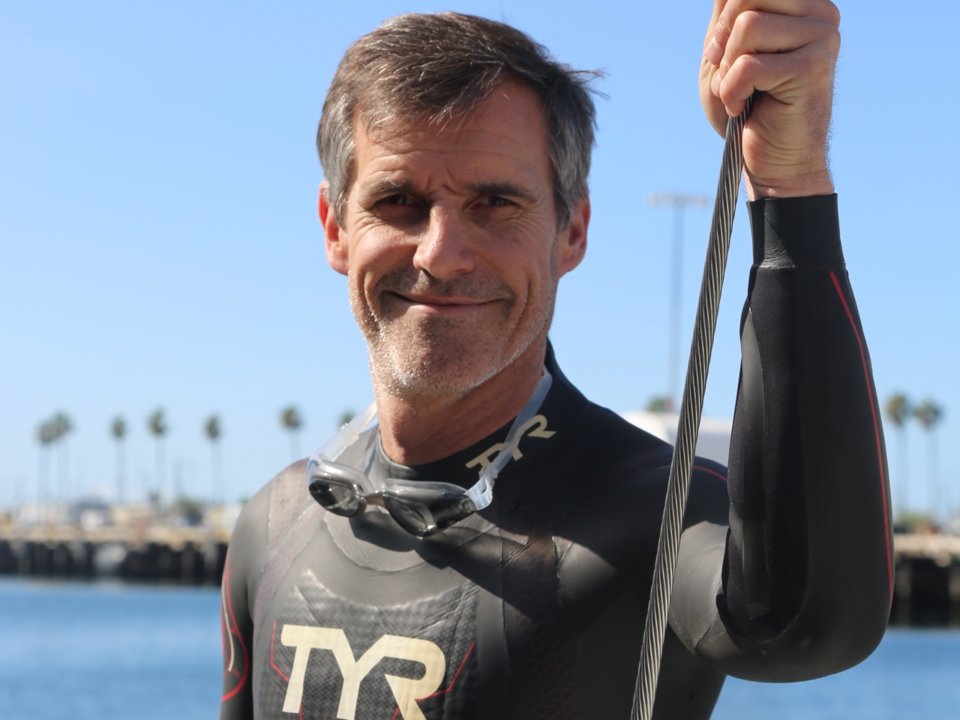Never again he said after swimming the Atlantic Ocean in 1998.
自从1998年畅游大西洋以后,他说将不再继续。
But 51-year-old Benoit Lecomte will be spending eight hours a day for the next six months swimming the Pacific Ocean.
但在接下来的六个月,51岁的贝诺特·莱科姆将畅游太平洋,每天游行时间为8小时。
I think I like the, to push the limit, my personal limit and try to find what that is and also to respect the environment.
我喜欢突破极限,我个人的极限,努力寻找我的极限是什么,当然也是为了尊重环境。
A sailboat carrying food, supplies and research gear will follow him.
一艘载有食物,补给和研究设备的帆船将跟随他。
His journey from Japan to California will take him through the Pacific garbage patch an area three times the size of France
他从日本到加利福尼亚的旅程将穿越太平洋垃圾带,它的面积是法国面积的三倍,
where plastic pollution accumulates and threatens wildlife.
那里的塑料污染堆积并威胁着野生动物。

When I was little and I was with my father walking on the beach, I didn't see any plastic or very hardly.
我小的时候和父亲一块在沙滩上散步,我几乎看不到塑料。
And now every time I go with my kids, we see plastic everywhere.
但现在,每次我和孩子们一块出来时,看到的都是塑料。
So it made me think wow, all that happened in just 30, 40 years or how it's going to be in the future? What is it going to be for my kids?
这让我想到,这一切竟发生在短短的30, 40年内,未来将会是什么样子,未来孩子们又会看到什么样的场景。
Lecomte will collect samples for researchers to study how plastic pollution affects life in the ocean and on land.
莱科姆将收集样本,供研究人员研究塑料污染如何影响海洋和陆地上的生命。
Data for dozens of experiments will be gathered along the way studying radiation from Fukushima,
沿途他们将收集试验所用的数据,比如福岛辐射,
ocean chemistry and biology and the effects of this extreme crossing on the swimmer's body and mind.
海洋化学以及海洋生物,以及这一极端活动对游泳者身心的影响。
My body just in autopilot and everything that happened to my body, pain or being cold and all that, I try to put aside.
我的身体处于自动驾驶状态,不管是疼痛还是寒冷,等等这些,我都尽量不去管它。
I try to think about my body just being a vehicle for me to do things.
我试着把我的身体当成我做事情的交通工具。
A human vehicle burning eight thousand calories a day with nothing but a wetsuit and goggles between him and the boundless Pacific.
这辆人肉交通工具每天消耗八千卡路里,除了潜水服和护目镜,其它什么都没有,还有无边无尽的太平洋。
Steve Baragona, VOA news
VOA新闻,史蒂夫·巴拉格纳。


